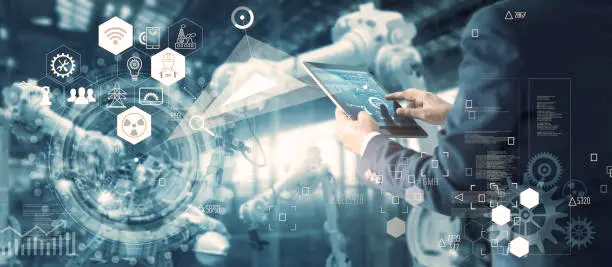
Empowering Education: The Impact of Automation in Learning Environments
- Admin
In the digital age, education is undergoing a profound transformation, driven by advancements in technology and the need for more personalized learning experiences. One of the most significant trends shaping this transformation is the integration of automation into learning environments. From classrooms to online platforms, automation is revolutionizing the way students learn, teachers teach, and educational institutions operate. In this article, we'll explore the impact of automation in education and how Ryodo Automation is empowering learning environments to thrive in the 21st century.
One of the key benefits of automation in education is its ability to personalize learning experiences for students. Through the use of adaptive learning platforms and AI-powered tutoring systems, educators can tailor instruction to meet the unique needs and learning styles of individual students. This personalized approach not only enhances student engagement and motivation but also improves learning outcomes by providing targeted support and feedback.
Automation also plays a crucial role in administrative tasks within educational institutions. Tasks such as student enrollment, grading, and scheduling can be time-consuming and resource-intensive when done manually. By implementing automated systems, schools and universities can streamline these processes, reduce administrative burden, and allocate resources more efficiently, allowing educators to focus on teaching and student support.
Furthermore, automation enables greater collaboration and communication within learning environments. Virtual learning environments, online collaboration tools, and communication platforms facilitate seamless interaction between students, teachers, and peers, regardless of geographical location. This fosters a collaborative learning culture and enables students to collaborate on projects, share resources, and engage in discussions, enhancing their learning experience and developing essential teamwork skills.
Another area where automation is transforming education is in assessment and feedback. Automated grading systems, plagiarism detection software, and data analytics tools enable educators to assess student performance more efficiently and provide timely feedback. This not only saves time for educators but also allows for more comprehensive analysis of student progress and learning trends, leading to targeted interventions and support where needed.
Ryodo Automation recognizes the transformative potential of automation in education and offers a range of solutions designed to empower learning environments. From learning management systems and virtual classrooms to AI-powered tutoring platforms, Ryodo Automation's solutions are revolutionizing the way educators teach and students learn, preparing them for success in the digital age.
In conclusion, automation is revolutionizing education by personalizing learning experiences, streamlining administrative tasks, fostering collaboration, and enhancing assessment and feedback processes. As technology continues to evolve, the role of automation in education will only become more pronounced, empowering educators and students to thrive in the 21st century and beyond. Embrace the future of education with Ryodo Automation and unlock new possibilities for teaching and learning.
